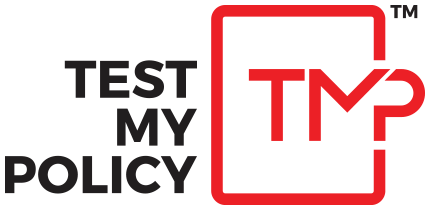
08-Apr-2021
- TMP Marketing
7 Critical Features to Look for in a Health Policy
It’s easy to get swayed by health insurance ads seen online, on tv and on social media. Insurance ads try to convince us that one health policy is better than the other by highlighting their unique features. Often, a ‘too-good-to-be true’ low premium seems like a great deal. But before you decide to pay your hard earned money for a health policy, you should be sure what you’re paying for. Here are some important health insurance benefits or features you need to consider when deciding on a policy.
Remember, health insurance plans can vary a lot among insurers. Even different health policies from the same insurer can have a lot of variations and options available at different price points. You need to be aware of these key features before opting for a health plan.
- Limits on room rent, ICU rent or treatments
Most health policies impose limits (or sub-limits) on the type of hospital room they cover in the plan. Remember that the overall treatment cost in a hospital (incl. consulting fee, diagnostic tests, procedure costs) is charged according to the room you select. A policy may cap per day room or per day ICU coverage to a percentage of the insured sum. See example.
Most policies also specify sub-limits on certain kinds of medical treatments. This means certain treatments are not covered or the cost may be only partially covered up to a limit. Depending on your medical needs, room rent and treatment limits is the most critical factors you should consider when buying a health insurance.
- Coverage for pre and post hospitalisation treatment
One of the key benefits of a health insurance policy is that it can also cover medical expenses incurred just before and after hospitalisation. These could include cost of consultation, medicines, treatments or therapies recommended by the doctor in charge of your hospital treatment. Most policies cover pre-hospitalisation treatment cost up to 30 days and post hospitalisation costs for 60 or 90 days.
3. Waiting Period of Pre-Existing Diseases (PED)
Pre-existing disease (PED) is defined as any condition, ailment or injury for which insured had symptoms, or was diagnosed, or received medical treatment before buying the first policy issued by the insurer. Although pre-existing ailments get covered by the policy after a certain waiting period, it is advisable to know how much time you need to wait before you’re eligible to file a claim for a pre-existing disease. This period is usually 48 months, though plans with 36 or even 24 month waiting period are also available.
Some of newer health plans now cover PED from the first year of policy purchase. Several health plans cover PED from the first year, provided the policy is continuously renewed with the same insurer without any claims for a period of four years.
- Sum Restoration Benefit
Restoration benefit is a feature which allows an automatic recharge of your sum insured after you file a claim. Restoration benefit essentially resets your sum insured under certain conditions. This can come in very handy especially in a family floater policy. Not all policies have this by default. Here’s an example to help you understand restoration benefit.
- Meet Mr. Kumar. He has a family floater policy with a sum insured of Rs. 3 lakhs. It also has a restoration benefit which will kick in once the initial sum insured is utilised.
- Kumar’s son is hospitalised and treated for a typhoid infection. He incurs a cost of Rs. 3 lakhs which exhausts the entire sum insured and is paid by his insurance provider.
- A couple of months later, Mr. Kumar’s wife has to be hospitalised for an unrelated viral infection and incurs an expenditure of Rs. 2 lakhs.
- But, the restoration benefit kicks in and he is reimbursed for the Rs. 2 lakhs as well.
- Even though Mr. Kumar’s policy had a sum insured of Rs. 3 lakhs, his restoration benefit meant he was actually covered for Rs. 5 lakhs.
A restoration benefit usually has some further conditions about when it kicks in. For instance, a waiting period to file a claim for the same medical condition for which you exhausted your original sum insured.
- Cashless treatment option
Most insurance companies have a network of reputable hospitals across the country and health insurance plans allow for cashless treatment in these hospitals. So at the time of a medical emergency or hospitalisation, you don’t have to worry about arranging cash to pay your hospital bill. Your health insurance company will settle it directly with the hospital if it is in their network. This is a must-have benefit your policy should have.
- Number of Network Hospitals
Depending on which city you stay in, your health insurance would usually have certain hospitals designated as Network Hospitals. Here you can find the maximum convenience in terms of cashless treatment and other facilities pre-arranged with the insurance company. Choose a policy that offers network hospitals which are easily accessible from your location.
- Claim Settlement Ratio & Incurred Claim Ratio
When considering a health insurance policy, pay attention to these two important markers of your insurance company. Claim settlement ratio is the percentage of claims the insurer has settled against the number of claims it receives in a financial year. Higher this ratio, better the chances of your claims being honoured by the insurance company.
Another important factor to choose your health insurance company is the Incurred Claim Ration or ICR. This is calculated as: ICR = Amount settled by the company / Amount collected as premium
Look for an insurance company that has a higher ICR ratio, as this means a higher likelihood of the insurance company to settle your claim.
Now while these are just 7 key things to keep in mind, there are many other parameters that you can compare different policies on. To know more about them, head to our Health Insurance FAQs.
If you’re not sure about the features your current health policy has or what it covers, you can always test it out at TestMyPolicy.com and get a detailed test report. Your test report will not just tell you about the gaps in your policy, but will also compare your policy features with better plans which you could port your policy to. Policy porting is allowed 45 days before your current policy expires
Refer to: https://www.hdfcergo.com/blog/health-insurance
Also look at ICICI Health Insurance Blog
Recent Article

28-Jan-2022
Super-Boost your health cover with Super Top-Up
The past few years have been a period of uncertainty and a bearer of bad news. Just when we thought this catastrophe was

08-Sep-2021
The Importance of Health Insurance
What is Health Insurance?
Health insurance is an agreement whereby insurance company agrees to

09-Aug-2021
What You Need to Know Before Porting Your Health Policy
Shantanu, a 45 year old professional, suffers from hyper-tension and when he bought health insurance, he cited the health

08-Jul-2021
Looking for Family Floater Health Insurance? Read this first.
A family floater health insurance protects you from high medical costs that may arise from the hospitalisation of your fa

08-Jun-2021
How to Save on the Premium Of Your Health Insurance?
Today every insurance company claims that they have the best health policy plans to offer. As customers, we also want a p

08-May-2021
A Simple Guide to Comprehensive Health Insurance
A health emergency can be a serious drain on one’s finances and resources. With the cost of quality health care and

08-Apr-2021
7 Critical Features to Look for in a Health Policy
It’s easy to get swayed by health insurance ads seen online, on tv and on social media



